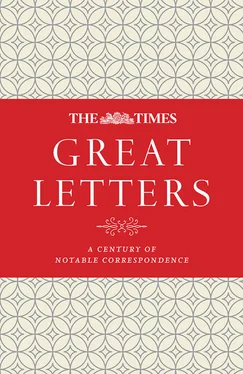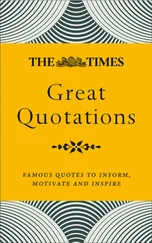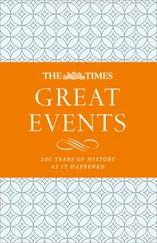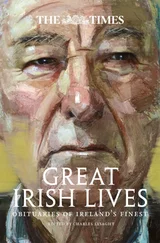* * * * * * *
An Act of Wilful Defiance
31 July 1917
I am making this statement as an act of wilful defiance of military authority because I believe that the war is being deliberately prolonged by those who have the power to end it. I am a soldier, convinced that I am acting on behalf of soldiers. I believe that the war upon which I entered as a war of defence and liberation has now become a war of aggression and conquest. I believe that the purposes for which I and my fellow soldiers entered upon this war should have been so clearly stated as to have made it impossible to change them and that had this been done the objects which actuated us would now be attainable by negotiation.
I have seen and endured the sufferings of the troops and I can no longer be a party to prolong these sufferings for ends which I believe to be evil and unjust. I am not protesting against the conduct of the war, but against the political errors and insincerities for which the fighting men are being sacrificed.
On behalf of those who are suffering now, I make this protest against the deception which is being practised upon them; also I believe it may help to destroy the callous complacency with which the majority of those at home regard the continuance of agonies which they do not share and which they have not enough imagination to realise.
LT. SIEGFRIED SASSOON
The poet’s celebrated letter of protest was sent originally to the Bradford Pioneer newspaper and republished four days later in The Times, having been read out in the House of Commons. Sassoon, who had won the Military Cross in France, had been on convalescent leave after being wounded. He wrote the letter after deciding to refuse to return to the trenches. His friend and fellow war poet Robert Graves persuaded the authorities that Sassoon was mentally ill and therefore unfit to be court-martialled. He was treated instead for shell shock at Craiglockhart Hospital, Edinburgh, where he met and encouraged Wilfred Owen in his writing.
* * * * * * *
Poppies
17 September 1917
Sir, The subjoined letter has been received by the mother of a young officer in the Household Battalion, and was written from the fighting line in Flanders. It pleasantly varies the story of devastation daily transmitted from the front, and incidentally reveals the sort of young fellow who, in various degrees of rank, is captaining our gallant Armies. This one, impatiently awaiting the birthday that marked the minimum age for military service, went from Eton straight to a training camp, and in due course had his heart’s desire by obtaining a commission. He followed close in the footsteps of an elder brother, also an Etonian, killed in his first month’s fighting.
“In England there seems to be a general belief that nothing but every imaginable hardship and horror is connected with the letters B.E.F., and, looking at these three letters, people see only bully beef, dug-outs, shell holes, mud, and such like as the eternal routine of life. True enough, these conditions do prevail very often, but in between whiles they are somewhat mitigated by most unexpected ‘corners.’ The other day we took over from a well-known Scottish regiment, whose reputation for making themselves comfortable was well known throughout the division, and when I went to examine my future abode I found everything up to the standard which I had anticipated. Standing on an oak table in the middle of the dug-out was a shell-case filled with flowers, and these not ordinary blossoms, but Madonna lilies, mignonette, and roses. This vase, if I may so term the receptacle, overshadowed all else and by its presence changed the whole atmosphere, the perfume reminding me of home, and what greater joy or luxury is there for any of us out here than such a memory?
“After having duly appreciated this most unexpected corner I inquired where the flowers had been gathered, and was told they had come from the utterly ruined village of Fampoux close by. At once I set out to explore and verify this information. Sure enough, between piles of bricks, shell holes, dirt, and every sort of débris, suddenly a rose in full bloom would smile at me, and a lily would waft its delicious scent and seem to say how it had defied the destroyer and all his frightfulness. In each corner where I saw a blossoming flower or even a ripening fruit, I seemed to realize a scene belonging to this unhappy village in peaceful days. Imagination might well lose her way in the paths of chivalry and romance perhaps quite unknown to the inhabitants of Fampoux. I meandered on through the village until I struck a trench leading up to the front line; this
I followed for a while until quite suddenly I was confronted by a brilliancy which seemed to me one of the most perfect bits of colour I have ever seen. Amongst innumerable shell holes there was a small patch of ground absolutely carpeted with buttercups, over which blazed bright, red poppies intermixed with the bluest of cornflowers. Here was a really glorious corner, and how quickly came memories of home! No one, however hardened by the horrors of war, could pass that spot without a smile or a happy thought. Perhaps it is the contrast of the perfection of these corners with the sordidness of all around that makes them of such inestimable value. Some such corners exist throughout France, even in the front line trenches. It may not be flowers, it may be only the corner of a field or barn; it may be some spoken word or a chance meeting. No matter what it is if it brings back a happy memory or reminds one of home. It is like a jewel in a crown of thorns giving promise of another crown and of days to come wherein, under other circumstances, we may be more worthy of the wearing.”
Yours faithfully,
HENRY LUCY
* * * * * * *
On the Eton Word “Rouge”
13 October 1917
Sir, I was once, about 30 years ago, discussing the Eton word “rouge” and the verb “to rouge” among some English friends at Florence, one of whom was the Hon. Alethea Lawley, sister of Lord Wenlock, of Escrick, in East Yorkshire. (NB — She has been for several years married to a Venetian, Signor Wiel, formerly Librarian of the Biblioteca Marciana.) Miss Lawley exclaimed: “Oh, but ‘to rouge’ is quite a common word in our part of Yorkshire, meaning ‘to push one’s way through anything’, and I have often, when two people are quarrelling, heard one of them say, ‘Now don’t ye come a-rouging against me!’” even as at Eton we might have said: “There against was an awful crowd, but I soon rouged my way through it!” Whenever I see a doubtful East Yorkshire word, I always turn to Vigfussen’s Icelandic Dictionary, wherein I have occasionally found the solution of some difficulties both in Norwegian as well as in East Yorkshire provincialisms. I find in Vigfussen, s.v.: Rydja (more anciently hrjóda) — rydja sér til rúms = “to make oneself room”; again, rydja sér til rikis = “to clear the way to a kingdom, i.e., to conquer it”; and III, “to clear one’s way, to make great havoc — to throng, to crowd.” I never can ignore the possible Scandinavian origin of any word, if it be in use in the east of England.
To give another instance. On one occasion I was reading in Ibsen’s Peer Gynt, where that rascal is relating a lying tale to his foolish old mother of how he sprang on to the back of a wounded buck and galloped along the Gendin Edge, when suddenly
“paa en raadlös braabraet plet
for ivrejret rype-steggan
flaksed, kaglende, forskraemt
fra den knart, hvor han sad gemt
klods for bukkens fod paa eggen.”
“Steggan” did not appear in any Norwegian dictionary that I possessed at that time, though it is given in Iver Aasen’s Dictionary of Provincial Dialects, but I bethought me of Vigfussen, and I found “Steggr m. Steggi, a.m. (properly a mounter); in Yorkshire a steg is a gander, from stiga (to mount); a he bird, Andar Steggi a male duck,” &c. Therefore the lines translate:
Читать дальше












